The tone is desperate but also dignified. Though poor, he addresses Monroe and Calhoun as duty-bound public servants and concludes familiarly by writing “no more at present but your well wishing friend” above his signature. Though he was poor, they worked for him. It is worth navigating the misspellings and missing punctuation to read an enlisted-man’s perspective that is only scarcely available from the Revolutionary War. Annotations are given below as end-notes to preserve the flow of the text. The Letter from Bartholomew Cyrus to President James Monroe and Secretary of State John C. Calhoun Nov. 21st 1821 Buckingham Cty.[1] Honorable presedent[2]and secatary of war[3]belonging to the united states I wish to inform you of my sufferance in the revolutionary war I inlisted in the year 1776[4]I went from Chesterfield County under Capt. James Harris a three year Soldier then inlisted some time after that for during the war I belonged to the 15 Virginia Ridgment General Woodfords brigade near Philadelphia at valy forge next summer we fought at monmouth the year following our brigade was sent off to Charlestown[5]South Carrolina there almost all were taken prisoners by the British[6]then General Green took command of us[7]and the first battle was at Gilford Courthouse[8]the next at eutawsprings[9]and a number of lives were lost on both sides we lay at ninety six siege[10]near 1 month scarcely 1 hour in the night but firing like claps of thunder many days we could not get any thing to eat 40$[11]was cried through the camp for 1 hoecake of bread and it could not be got we were like hogs that had been wallowing when we came out of the intrenchment the next siege was at camblain[12]near 1 month and we suffered very much there and a great many dserted and would not stand the sufferance[13]I was never absent one day without liberty. I was discharged in the year 1783 July the 6 day at winchester barracks[14]under the command of General neulinburg[15]Capt. kirk partrick was my Capt.[16]I served during this time without ever being confined or one lick[17]which few can say in truth sir look at your records and you’ll find this to be truth Sir I have received three draws from the pension you bestowed us then I sent my Schedule and have got no return from it proved before judge Daniel I am upon sufferance I have had the misfortune a few years since to loose one of my hands by a gun bursting and am troubled at times with reumatic pains and my wife worse off than myself I am going on 64 years of age and my wife is near 70 years of age I was a poor boy had nothing but my shirt and pantaloons when I went in to the army. I think it hard for me to suffer now after doing as much for my country as I have and without your assistance am oblige to go to the poor house and I had almost rather died[18]I thank you for what you have done with more thanks than my lips can express and would freely down with my nees for assistance[19]no more at present but your well wishing friend Bartholomew Cyrus I would be thankful to you to let me know at Oakville post office Buckingham County what I am to depend on Bartholomew Cyrus.[20] Cyrus got his pension. After his wife died, he got married again in 1833 to a younger woman named Phebe. He died in 1855 at the age of 97, and Phebe inherited his pension. A decade later, after the end of the Civil War, sheapplied for the restoration of the benefit, which had been suspended during the war. She was unable to return the old pension certificate, because it hd been “destroyed by being in a house between the lines of the two armies while engaged.” She had given the certificate to a neighbor named William Durrum to keep in his house, but during the Battle of Appomattox Courthouse “it was destroyed or taken off by the soldiery.” She stated that she had resided in the town of Appomattox Courthouse during the Civil War, when her means of subsistence had been “a small remnant of her pension fund and then she was supported by her relations and friends, except a small allowance from the pauper fund from the Overseers of the Poor of Appomattox County.” The Bartholomew Cyrus pension file contains an Amnesty Oath signed with her mark. The oath, as prescribed by President Johnson, was as follows: I, _____, do solemnly swear or affirm, in presence of Almighty God, that I will henceforth faithfully support and defend the Constitution of the United States and the Union of the States thereunder. And that I will, in like manner, abide by and faithfully support all laws and proclamations which have been made during the existing rebellion with reference to the emancipation of slaves, so help me God. [Source:Pension Application of Bartholomew Cyrus W25467, transcribed and annotated by C. Leon Harris. Summary of Phebe Cyrus application adapted from C. Leon Harris.] [1]Rural Buckingham County lies between the Appomattox Court House, where the Civil War ended, and Thomas Jefferson’s home at Monticello. [2]James Monroe, now in his second term. [3]John C. Calhoun of South Carolina. [4]An error. He enlisted in 1777. [5]Charles Town was renamed Charleston at the end of the war. [6]Maj. Gen. Benjamin Lincoln surrendered May 12, 1780. Cyrus evidently escaped or avoided capture. [7]Maj. Gen. Nathanael Greene, 3 Dec 1780. [8]The Battle of Guilford Courthouse, North Carolina, March 15, 1781. [9]The Battle of Eutaw Springs, September 8, 1781. [10]The Siege of Ninety-Six, South Carolina, May 22 to June 18, 1781. [11]Forty dollars. [12]Probably a mis-transcription of “Cambdain,” or the Second Battle of Camden, better known as the Battle of Hobkirk’s Hill, April 25, 1781. Though it was an American loss, Greene returned to the area after the battle so it is not unreasonable for Cyrus to recall it as a “siege.” [13]The actual sequence of events was: Guilford Courthouse, Camden, Ninety-Six, Eutaw Springs. [14]Winchester, Virginia. [15]Brig. Gen. Peter Muhlenberg. [16]Captain Abraham Kirkpatrick. [17]Jailed or whipped. [18]He would almost rather die than go to the poor house. [19]He would go down on his knees to beg for help. [20]A post script. More from The 8th Virginia Regiment
1 Comment
See "The Fort Gower Resolves" (August 3, 2022) for a longer essay on this subject.  After defeating an army of Shawnee and other Indians at Point Pleasant in 1774, Virginia militia officers pledged their loyalty to the King "whilst his Majesty delights to reign over a brave and free people." (Image: "In Pursuit" by Doug Hall, doughallgallery.com) After defeating an army of Shawnee and other Indians at Point Pleasant in 1774, Virginia militia officers pledged their loyalty to the King "whilst his Majesty delights to reign over a brave and free people." (Image: "In Pursuit" by Doug Hall, doughallgallery.com) Long after the Revolution, Col. John Stuart of Greenbriar County recalled the Virginia Militia army that defeated the usually victorious Shawnee at the Battle of Point Pleasant in 1774. General Lewis’s army consisted chiefly of young volunteers, well trained to the use of arms, as hunting, in those days, was much practised, and preferred to agricultural pursuits by enterprising young men. The produce of the soil was of little value on the west side of the Blue Ridge— the ways bad, and the distance to market too great to make it esteemed. Such pursuits inured them to hard ships and danger. We had more than every fifth man in our army killed or wounded in the battle,— but none were disheartened ; all crossed the river with cheerfulness, bent on destroying the enemy;- and had they not been restrained by the Governor’s orders, I believe they would have exterminated the Shawanese nation. Stuart said this after noting that the Shawnee were the tribe that had (often with allies) repeatedly defeated Virginian and American armies on the frontier: those of Gen. Edward Braddock (1755) and Major James Grant (1758) in the French and Indian War; colonels John Todd and Stephen Trigg at the Battle of Blue Licks (1782) in Kentucky; and against generals Josiah Harmar (1790) and Arthur St. Clair (1791) in Ohio. The victory at Point Pleasant was a very big deal. Moreover, though Lord Dunmore (the governor of Virginia) had raised and led the army, the victory had been won without him by the other of two divisions. An army of frontier Virginia marksmen, many of them occasional subsistence hunters, had proven what they could do. Dunmore headed back to Williamsburg. His officers, cognizant of political events, convened on November 5 at Fort Gower (modern Hockingport, Ohio) on the Ohio River. Among those present were many men who would be important in the Revolution, including William Campbell, George Rogers Clark, Simon Kenton, Andrew Lewis, Daniel Morgan, William Russell, and Adam Stephen. An unidentified officer (possibly Adam Stephen) addressed the group. Having concluded the campaign against the Indians, he said, “it only remains that we should give our country the strongest assurance that we are ready, at all times, to the utmost of our power, to maintain and defend her just rights and privileges.” He was careful to deny that the army had any revolutionary intentions while also making it clear where their real loyalties lay. “We have lived about three months in the woods without any intelligence from Boston; or from the Delegates at Philadelphia. It is possible, from the groundless reports of designing men, that our countrymen may be jealous of the use such a body would make of arms in their hands at this critical juncture. That we are a respectable body is certain, when it is considered that we can live weeks without bread or salt; that we can sleep in the open air without any covering but that of the canopy of Heaven; and that our men can march and shoot with any in the known world. Blessed with these talents, let us solemnly engage to one another, and our country in particular, that we will use them to no purpose but for the honour and advantage of America in general, and of Virginia in particular. It behooves us then, for the satisfaction of our country, that we should give them our real sentiments, by way of resolves, at this very alarming crisis." A committee was formed to draft the resolves, which were published soon after. Like other documents of the period immediately before the war, it proclaims loyalty to the King and the governor, but in a way that implied a threat. Resolved, That we will bear the most faithful allegiance to his Majesty King George the Third, whilst his Majesty delights to reign over a brave and free people; that we will, at the expense of life, and every thing dear and valuable, exert ourselves in support of the honour of his Crown and the dignity of the British Empire. But as the love of Liberty, and attachment to the real interests and just rights of America outweigh every other consideration, we resolve that we will exert every power within us for the defence of American liberty, and for the support of her just rights and privileges; not in any precipitate, riotous, or tumultuous manner, but when regularly called forth by the unanimous voice of our countrymen. Resolved, That we entertain the greatest respect for his Excellency the Right Honourable Lord Dunmore, who commanded the expedition against the Shawanese; and who, we are confident, underwent the great fatigue of this singular campaign from no other motive than the true interest of this country. Signed by order and in behalf of the whole Corps, BENJAMIN ASHBY, Clerk. Lord Dunmore, whose motives for leading the campaign came to be suspected, fled Williamsburg just a few months later. Little is remembered about Benjamin Ashby, who signed the document on behalf of the unanimous officers. The ink he put to paper had an impact, however. Just three years later his nephew, George Ashby, a private in the 8th Virginia, would be scrambling about the ground during the Siege of Fort Mifflin collecting and recycling hot cannonballs as his comrades’ ammunition ran low. More from The 8th Virginia Regiment
Could the abolition of American slavery have come sooner? Maybe. Slavery never existed in the New World without someone also speaking out against it, and antislavery views took a demonstrably large leap forward during the founding era. Christianity, social contract theory, and the very spirit of the Revolution led many Americans to the same conclusion. Even many slaveowners understood it was wrong. “I can only say,” wrote George Washington about slavery in 1786, “that there is not a man living who wishes more sincerely than I do, to see a plan adopted for the abolition of it.” Thomas Jefferson memorably condemned slavery in his first draft of the Declaration of Independence. While this language was removed by Congress, Jefferson really did want to effect a change. His concurrent draft of a Virginia constitution would have decreed, “No person hereafter coming into this country shall be held in slavery under any pretext whatever.” A decade later, he wrote that“The whole commerce between master and slave is a perpetual exercise of the most boisterous passions, the most unremitting despotism on the one part, and degrading submissions on the other. Our children see this, and learn to imitate it; for man is an imitative animal.” His concern was not just for Virginia’s children: And can the liberties of a nation be thought secure when we have removed their only firm basis, a conviction in the minds of the people that these liberties are the gift of God? That they are not to be violated but with his wrath? Indeed I tremble for my country when I reflect that God is just: that his justice cannot sleep forever: that considering numbers, nature and natural means only, a revolution of the wheel of fortune, an exchange of situation is among possible events: that it may become probable by supernatural interference! The almighty has no attribute which can take side with us in such a contest. More from The 8th Virginia Regiment
Multiple conflicts occurred in the pre-Revolutionary northeast, including such little-remembered wars such as King William's War, Queen Anne’s War, and Father Rale’s War. Louisbourg was (and is) positioned on the east coast of Cape Breton and directly east of the modern state of Maine, which was then part of Massachusetts. Louisbourg itself was a threat to New England: it was a center for privateering and well positioned to interfere with New England’s economically crucial fishing industry. At the start of King George’s War (known in Europe as the War of Austrian Succession) in 1744, a Franco-Indian force raided and destroyed the British fishing village at Canso, in nearby Nova Scotia. In 1745, Massachusetts Governor William Shirley organized a response. Militia from Massachusetts, Connecticut, and New Hampshire set off on an expedition supported with funds and supplies from Rhode Island, New York, and Pennsylvania. While there were no professional soldiers involved, the force did have support from the British Navy. The Fortress of Louisbourg was thought to be impenetrable from the sea. A land approach, however, provided hilly terrain that allowed for the erection of siege batteries. After a siege of several weeks and a number of raids and skirmishes, the fortress surrendered on June 27, 1745. While the French forces had suffered from poor morale and other issues, the stark fact remained that American militia had taken on and defeated a professional army sheltered in a major fortification. This was well enough remembered that in 1774, the First Continental Congress noted in its Address to the People of Great Britain that it was "chiefly by" the "vigorous efforts" of the people of Massachusetts that "Nova-Scotia was subdued in 1710, and Louisbourg in 1745."
While the British army was humiliated, Washington’s own reputation for heroism was bolstered, in part because of his own reports. “I luckily escaped without a wound,” he wrote, “though I had four bullets through my coat, and two horses shot under me.” Louisbourg (1745), Monongahela (1755), and the outbreak of the Revolution itself in 1775 are milestones in the colonists’ increasing confidence in their own military capabilities. Though Louisbourg was remote from Virginia, it was not remote from those who began the war in Massachusetts. Braddocks’ defeat was very much front-of-mind to all Virginians at the start of the war. This must have been especially true for men like the 8th Virginia's Maj. Peter Helphenstine and Capt. Thomas Berry of Winchester (Washington's headquarters during the French and Indian War) and Captains John Stephenson and William Croghan who filled their companies with men from the settlements near the site of the general’s failure.
This elevated view of their militias’ capabilities must be viewed as an important factor in the colonists’ decision to take up arms against the Crown. It is even more important in view of the prevalent Anglo-American dislike of standing or “regular” armies. Oliver Cromwell had used his “New Model” army to rule by martial law. King James II had attempted to use a standing, professional army to restore the monarchy’s supremacy over parliament. For this is he was deposed and replaced by William and Mary, who accepted a Declaration of Rights (enacted as a “Bill of Rights” in 1689) that specifically forbade standing armies on British soil in peace time.
"Also we do ... DECLARE ... that all and every the Persons being our Subjects, which shall dwell and inhabit within every or any of the said several Colonies and Plantations, and every of their children, which shall happen to be born within any of the Limits and Precincts of the said several Colonies and Plantations, shall HAVE and enjoy all Liberties, Franchises, and Immunities, within any of our other Dominions, to all Intents and Purposes, as if they had been abiding and born, within this our Realm of England, or any other of our said Dominions." Among the 27 indictments against the King in the Declaration of Independence was the charge that “He has kept among us, in times of peace, Standing Armies without the Consent of our legislatures.” When the war began, it was a war between American militia and British regulars. While some might have seen this as an uneven fight, many more saw it as proof of the justice and moral superiority of the American cause.
More from The 8th Virginia Regiment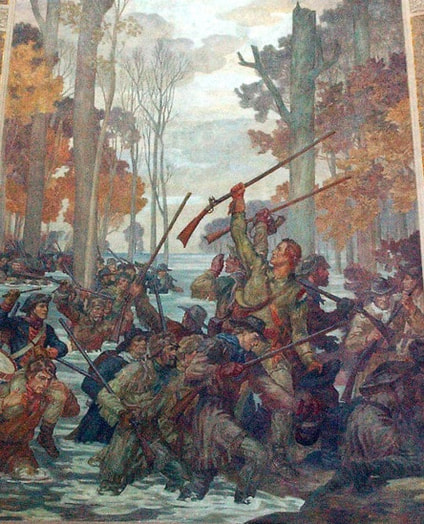 George Rogers Clark leading troops on the frontier. (National Park Service) George Rogers Clark leading troops on the frontier. (National Park Service) In 1781, the traitor Benedict Arnold was sent to Virginia by the British to disrupt American supply lines supporting patriots farther south. Opposing him was Brig. Gen. Peter Muhlenberg, the 8th Virginia’s original colonel. Gov. Thomas Jefferson gave Muhlenberg instructions to capture Arnold and specified that the plan should be carried out by “men from the western side of the mountains.” As a former pastor from Woodstock and colonel of the 8th Virginia, Muhlenberg knew many such men. Jefferson wrote: You will readily suppose that it is above all things desireable to drag him from those under whose wing he is now sheltered. ... Having peculiar confidence in the men from the Western side of the mountains, I meant as soon as they should come down to get the enterprize proposed to a chosen number of them, such whose courage and whose fidelity would be above all doubt. Your perfect knowlege of those men personally, and my confidence in your discretion, induce me to ask you to pick from among them proper characters, in such number as you think best, to reveal to them our desire, and engage them [to] undertake to seize and bring off this greatest of all traitors. Whether this may be best effected by their going in as friends and awaiting their opportunity, or otherwise is left to themselves. The smaller the number the better; so that they be sufficient to manage him. Every necessary caution must be used on their part to prevent a discovery of their design by the enemy, as should they be taken, the laws of war will justify against them the most rigorous sentence. I will undertake if they are succesful in bringing him off alive, that they shall receive five thousand guineas reward among them, and to men formed for such an enterprize it must be a great incitement to know that their names will be recorded with glory in history.... Arnold wasn’t captured. His security was too tight. Some histories, however, report rumors of a failed attempt. Edward Hocker’s 1936 biography of Muhlenberg, for example, documents a “tradition” that Col. George Rogers Clark (who had two brothers in the 8th Virginia) was tapped to lead the mission. Clark was newly famous for his successful campaign against the British in Illinois and his capture of Gov. Henry Hamilton, the coordinator of Indian attacks on the frontier. According to Hocker’s narrative, one of Clark’s men was captured and taken before Arnold, who asked him, “What would be my fate if the Americans caught me?” The prisoner replied, “We would cut off that shortened leg wounded at Quebec and Saratoga and bury it with the honors of war, and then hang the rest of you.” Ironically, it was George Rogers Clark who ultimately had his leg cut off. Many years later, after a having a stroke and in a drunken stupor, he fell into a fireplace and severely burned himself. When gangrene set in, he was told a leg would have to be amputated. On the day of the procedure, he arranged to have fifers and drummers from the local militia come and play martial tunes to celebrate. He reportedly tapped his fingers in time with the music as they sawed off his leg, “effected more by the music than the pain.” Updated August 24, 2019 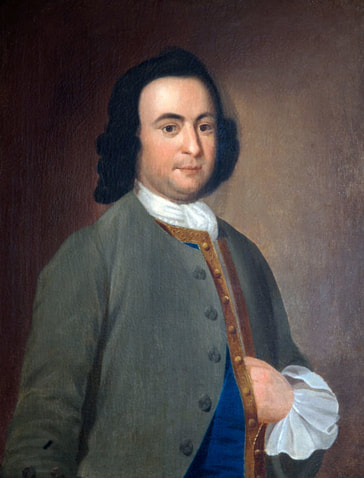 George Mason, the principal author of the Virginia Declaration of Rights. George Mason, the principal author of the Virginia Declaration of Rights. On May 15, 1776 the provisional government of Virginia voted to instruct its Congressional delegation to propose and support a declaration of independence from Great Britain. This was about the time the 8th Virginia marched south with General Charles Lee to meet the enemy in the Carolinas. However, a few of the regiment’s soldiers—stragglers and sick men who were left behind—may have witnessed the celebration on May 16. The Union Jack was lowered from the capital and replaced with the Grand Union flag. The men were paraded to nearby Walter’s Grove, attended by the commander of the provincial army (General Andrew Lewis), the Committee of Safety, the Virginia Convention, and members of the public. The resolution was read aloud, followed by three toasts. The first was to “The American independent states.” The second was to “The Grand Congress of the United States and their respective Legislatures.” The third was to “General Washington, and victory to the American Arms.” Each toast was saluted by the firing of cannon. After the reading, an outdoor “refreshment” was held for the soldiers. When the sun set, illuminations were lit to celebrate. The next day, May 17, was set aside as a day for fasting and prayer. Three weeks later, the Virginia delegation complied with its mandate, proposing independence to the Continental Congress in Philadelphia. Less than a month after that, Independence was formally declared. It took until early August for the 8th Virginia to hear the news in far-off Charleston, South Carolina. 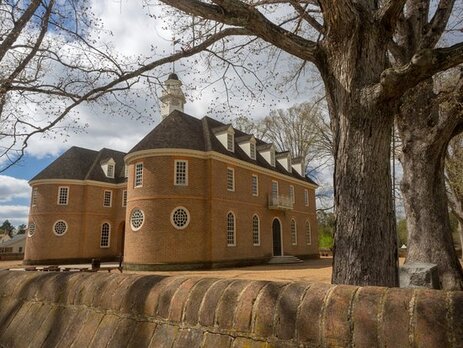 The rebuilt colonial capitol of Virginia. The rebuilt colonial capitol of Virginia. Meanwhile, 8th Virginia stragglers continued to arrive in the capital, including an entire company under the command of Captain William Croghan from Fort Pitt. These men were present when two truly world-historical events occurred in Williamsburg: the June 12th adoption of the Virginia Declaration of Rights (a precursor to and model for the Declaration of Independence), and the June 29 adoption of a new, written (rather than evolving or “living”) constitution which declared the people rather than a monarch to be sovereign. On July 6, Patrick Henry became the first elected governor of Virginia. The new constitution became a model for other states as they established new governments, a model for the American Constitution of 1787, and a model for the world. The May 15 resolution, the Virginia Declaration of Rights, and the original Virginia Constitution are all worth the few minutes it takes to read them. The Declaration was written by George Mason with revisions from Robert Nicholas and James Madison. It is clear how much Thomas Jefferson depended on Mason’s writing in drafting Congress’s Declaration for the colonies. Mason's Declaration was a template for the Bill of Rights as well. Similarly, the Virginia Constitution begins very much like the Declaration of Independence, including a list of grievances and justifications for separation. Virginia's new constitution was the first successful and permanent written constitution in world history. The short-lived Republic of Corsica had written one in the 1750s. Other states (South Carolina and New Hampshire adopted earlier, temporary frameworks that were intended to serve only until peace with Great Britain was restored. Some other states had tweaked their colonial charters. Virginia's Constitution established a permanent frame of government that was explicitly new. It required that the governor "shall not, under any pretence, exercise any power or prerogative, by virtue of any law, statute or custom of England." The U.S Constitution and all 50 state constitutions are largely based on Virginia's 1776 frame of government. Globally, written constitutions are now almost universal and many nations have constitutions that are based in some way on America's--and, therefore, Virginia's. For the United States, July 4 is celebrated as Independence Day. Virginians should also celebrate--or at least remember--May 15. The May 15 Resolution Forasmuch as all the endeavours of the United Colonies, by the most decent representations and petitions to the King and Parliament of Great Britain, to restore peace and security to America under the British Government, and a reunion with that people upon just and liberal terms, instead of a redress of grievances, have produced, from an imperious and vindictive Administration, increased insult, oppression, and a vigorous attempt to effect our total destruction. By a late act all these Colonies are declared to be in rebellion, and out of the protection of the British Crown, our properties subjected to confiscation, our people, when captivated, compelled to join in the murder and plunder of their relations and countermen, and all former rapine and oppression of Americans declared legal and just; fleets and armies are raised, and the aid of foreign troops engaged to assist these destructive purposes; the King's representative in this Colony bath not only withheld all the powers of Government from operating for our safety, but, having retired on board an armed ship, is carrying on a piratical and savage war against us, tempting our slaves by every artifice to resort to him, and training and employing them against their masters. In this state of extreme danger, we have no alternative left but an abject submission to the will of those overbearing tyrants, or a total separation from the Crown and Government of Great Britain, uniting and exerting the strength of all America for defence, and forming alliances with foreign Powers for commerce and aid in war. Wherefore, appealing to the Searcher of hearts for the sincerity of former declarations expressing our desire to preserve the connection with that nation, and that we are driven from that inclination by their wicked councils, and the eternal law of self-preservation: Resolved, unanimously, That the Delegates appointed to represent this Colony in General Congress be instructed to propose to that respectable body to declare the United Colonies free and independent States, absolved from all allegiance to, or dependence upon, the Crown or Parliament of Great Britain; and that they give the assent of this Colony to such declaration, and to whatever measures may be thought proper and necessary by the Congress for forming foreign alliances, and a Confederation of the Colonies, at such time and in the manner as to them shall seem best: Provided, That the power of forming Government for, and the regulations of the internal concerns of each Colony, be left to the respective Colonial Legislatures. Resolved, unanimously, That a Committee be appointed to prepare a Declaration of Rights, and such a plan of Government as will be most likely to maintain peace and order in this Colony, and secure substantial and equal liberty to the people. The Virginia Declaration of Rights 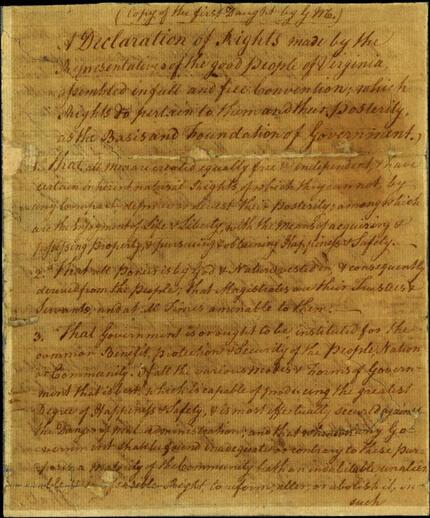 The Virginia Declaration of Rights. (Library of Virginia) The Virginia Declaration of Rights. (Library of Virginia) A DECLARATION OF RIGHTS made by the representatives of the good people of Virginia, assembled in full and free convention which rights do pertain to them and their posterity, as the basis and foundation of government. Section 1. That all men are by nature equally free and independent and have certain inherent rights, of which, when they enter into a state of society, they cannot, by any compact, deprive or divest their posterity; namely, the enjoyment of life and liberty, with the means of acquiring and possessing property, and pursuing and obtaining happiness and safety. Section 2. That all power is vested in, and consequently derived from, the people; that magistrates are their trustees and servants and at all times amenable to them. Section 3. That government is, or ought to be, instituted for the common benefit, protection, and security of the people, nation, or community; of all the various modes and forms of government, that is best which is capable of producing the greatest degree of happiness and safety and is most effectually secured against the danger of maladministration. And that, when any government shall be found inadequate or contrary to these purposes, a majority of the community has an indubitable, inalienable, and indefeasible right to reform, alter, or abolish it, in such manner as shall be judged most conducive to the public weal. Section 4. None of mankind is entitled to exclusive or separate emoluments or privileges from the community, but in consideration of public services; which, not being descendible, neither ought the offices of magistrate, legislator, or judge to be hereditary. Section 5. That the legislative and executive powers of the state should be separate and distinct from the judiciary; and that the members of the two first may be restrained from oppression, by feeling and participating the burdens of the people, they should, at fixed periods, be reduced to a private station, return into that body from which they were originally taken, and the vacancies be supplied by frequent, certain, and regular elections, in which all, or any part, of the former members, to be again eligible, or ineligible, as the laws shall direct. Section 6. That elections of members to serve as representatives of the people, in assembly ought to be free; and that all men, having sufficient evidence of permanent common interest with, and attachment to, the community, have the right of suffrage and cannot be taxed or deprived of their property for public uses without their own consent or that of their representatives so elected, nor bound by any law to which they have not, in like manner, assented for the public good. Section 7. That all power of suspending laws, or the execution of laws, by any authority, without consent of the representatives of the people, is injurious to their rights and ought not to be exercised. Section 8. That in all capital or criminal prosecutions a man has a right to demand the cause and nature of his accusation, to be confronted with the accusers and witnesses, to call for evidence in his favor, and to a speedy trial by an impartial jury of twelve men of his vicinage, without whose unanimous consent he cannot be found guilty; nor can he be compelled to give evidence against himself; that no man be deprived of his liberty except by the law of the land or the judgment of his peers. Section 9. That excessive bail ought not to be required, nor excessive fines imposed, nor cruel and unusual punishments inflicted. 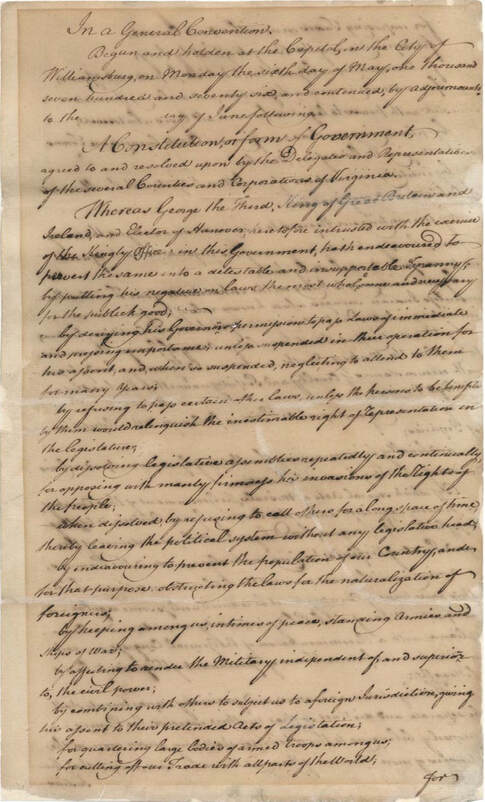 The Virginia Constitution of 1776. (Library of Virginia) The Virginia Constitution of 1776. (Library of Virginia) Section 10. That general warrants, whereby an officer or messenger may be commanded to search suspected places without evidence of a fact committed, or to seize any person or persons not named, or whose offense is not particularly described and supported by evidence, are grievous and oppressive and ought not to be granted. Section 11. That in controversies respecting property, and in suits between man and man, the ancient trial by jury is preferable to any other and ought to be held sacred. Section 12. That the freedom of the press is one of the great bulwarks of liberty, and can never be restrained but by despotic governments. Section 13. That a well-regulated militia, composed of the body of the people, trained to arms, is the proper, natural, and safe defense of a free state; that standing armies, in time of peace, should be avoided as dangerous to liberty; and that in all cases the military should be under strict subordination to, and governed by, the civil power. Section 14. That the people have a right to uniform government; and, therefore, that no government separate from or independent of the government of Virginia ought to be erected or established within the limits thereof. Section 15. That no free government, or the blessings of liberty, can be preserved to any people but by a firm adherence to justice, moderation, temperance, frugality, and virtue and by frequent recurrence to fundamental principles. Section 16. That religion, or the duty which we owe to our Creator, and the manner of discharging it, can be directed only by reason and conviction, not by force or violence; and therefore all men are equally entitled to the free exercise of religion, according to the dictates of conscience; and that it is the mutual duty of all to practise Christian forbearance, love, and charity toward each other. The Virginia Constitution of 1776 THE CONSTITUTION OR FORM OF G0VERNMENT, AGREED TO AND RESOLVED UPON BY THE DELEGATES AND REPRESENTATIVES OF THE SEVERAL COUNTIES AND CORPORATIONS OF VIRGINIA Whereas George the third, King of Great Britain and Ireland, and elector of Hanover, heretofore intrusted with the exercise of the kingly office in this government, hath endeavoured to prevent, the same into a detestable and insupportable tyranny, by putting his negative on laws the most wholesome and necessary for the public good: By denying his Governors permission to pass laws of immediate and pressing importance, unless suspended in their operation for his assent, and, when so suspended neglecting to attend to them for many years: By refusing to pass certain other laws, unless the persons to be benefited by them would relinquish the inestimable right of representation in the legislature: By dissolving legislative Assemblies repeatedly and continually, for opposing with manly firmness his invasions of the rights of the people: When dissolved, by refusing to call others for a long space of time, thereby leaving the political system without any legislative head: By endeavouring to prevent the population of our country, and, for that purpose, obstructing, the laws for the naturalization of foreigners: By keeping among us, in times of peace, standing armies and ships of war: By effecting to render the military independent of, and superior to, the civil power: By combining with others to subject us to a foreign jurisdiction, giving his assent to their pretended acts of legislation: For quartering large bodies of armed troops among us: For cutting off our trade with all parts of the world: For imposing taxes on us without our consent: For depriving us of the benefits of trial by jury: For transporting us beyond seas, to be tried for pretended offences: For suspending our own legislatures, and declaring themselves invested with power to legislate for us in all cases whatsoever: By plundering our seas, ravaging our coasts, burning our towns, and destroying the lives of our people: By inciting insurrections of our fellow subjects, with the allurements of forfeiture and confiscation: By prompting our negroes to rise in arms against us, those very negroes whom, by an inhuman use of his negative, he hath refused us permission to exclude by law: By endeavoring to bring on the inhabitants of our frontiers the merciless Indian savages, whose known rule of warfare is an undistinguished destruction of all ages, sexes, and conditions of existence: By transporting, at this time, a large army of foreign mercenaries, to complete the works of death, desolation, and tyranny, already begun with circumstances of cruelty and perfidy unworthy the head of a civilized nation: By answering our repeated petitions for redress with a repetition of injuries: And finally, by abandoning the helm of government and declaring us out of his allegiance and protection. By which several acts of misrule, the government of this country, as formerly exercised under the crown of Great Britain, is TOTALLY DISSOLVED. We therefore, the delegates and representatives of the good people of Virginia, having maturely considered the premises, and viewing with great concern the deplorable conditions to which this once happy country must be reduced, unless some regular, adequate mode of civil polity is speedily adopted, and in compliance with a recommendation of the General Congress, do ordain and declare the future form of government of Virginia to be as followeth: The legislative, executive, and judiciary department, shall be separate and distinct, so that neither exercise the powers properly belonging to the other: nor shall any person exercise the powers of more than one of them, at the same time; except that the Justices of the County Courts shall be eligible to either House of Assembly. The legislative shall be formed of two distinct branches, who, together, shall be a complete Legislature. They shall meet once, or oftener, every year, and shall be called, The General Assembly of Virginia. One of these shall be called, The House of Delegates, and consist of two Representatives, to be chosen for each county, and for the district of West-Augusta, annually, of such men as actually reside in, and are freeholders of the same, or duly qualified according to law, and also of one Delegate or Representative, to be chosen annually for the city of Williamsburgh, and one for the borough of Norfolk, and a Representative for each of such other cities and boroughs, as may hereafter be allowed particular representation by the legislature; but when any city or borough shall so decrease, as that the number of persons, having right of suffrage therein, shall have been for the space of seven years successively, less than half the number of voters in some one county in Virginia, such city or borough thenceforward shall cease to send a Delegate or Representative to the Assembly. The other shall be called The Senate, and consist of twenty-four members, of whom thirteen shall constitute a House to proceed on business; for whose election, the different counties shall be divided into twenty-four districts; and each county of the respective district, at the time of the election of its Delegates, shall vote for one Senator, who is actually a resident and freeholder within the district, or duly qualified according to law, and is upwards of twenty-five years of age; and the Sheriffs of each county, within five days at farthest, after the last county election in the district, shall meet at some convenient place, and from the poll, so taken in their respective counties, return, as a Senator, the man who shall have the greatest number of votes in the whole district. To keep up this Assembly by rotation, the districts shall be equally divided into four classes and numbered by lot. At the end of one year after the general election, the six members, elected by the first division, shall be displaced, and the vacancies thereby occasioned supplied from such class or division, by new election, in the manner aforesaid. This rotation shall be applied to each division, according to its number, and continued in due order annually. The right of suffrage in the election of members for both Houses shall remain as exercised at present; and each House shall choose its own Speaker, appoint its own officers, settle its own rules of proceeding, and direct writs of election, for the supplying intermediate vacancies. All laws shall originate in the House of Delegates, to be approved of or rejected by the Senate, or to be amended, with consent of the House of Delegates; except money-bills, which in no instance shall be altered by the Senate, but wholly approved or rejected. A Governor, or chief magistrate, shall be chosen annually by joint ballot of both Houses (to be taken in each House respectively) deposited in the conference room; the boxes examined jointly by a committee of each House, and the numbers severally reported to them, that the appointments may be entered (which shall be the mode of taking the joint ballot of both Houses, in all cases) who shall not continue in that office longer than three years successively, nor be eligible, until the expiration of four years after he shall have been out of that office. An adequate, but moderate salary shall be settled on him, during his continuance in office; and he shall, with the advice of a Council of State, exercise the executive powers of government, according to the laws of this Commonwealth; and shall not, under any pretence, exercise any power or prerogative, by virtue of any law, statute or custom of England. But he shall, with the advice of the Council of State, have the power of granting reprieves or pardons, except where the prosecution shall have been carried on by the House of Delegates, or the law shall otherwise particularly direct; in which cases, no reprieve or pardon shall be granted, but by resolve of the House of Delegates. Either House of the General Assembly may adjourn themselves respectively. The Governor shall not prorogue or adjourn the Assembly, during their sitting, nor dissolve them at any time; but he shall, if necessary, either by advice of the Council of State, or on application of a majority of the House of Delegates, call them before the time to which they shall stand prorogued or adjourned. A Privy Council, or Council of State, consisting of eight members, shall be chosen, by joint ballot of both Houses of Assembly, either from their own members or the people at large, to assist in the administration of government. They shall annually choose, out of their own members, a President, who, in case of death, inability, or absence of the Governor from the government, shall act as Lieutenant-Governor. Four members shall be sufficient to act, and their advice and proceedings shall be entered on record, and signed by the members present, (to any part whereof, any member may enter his dissent) to be laid before the General Assembly, when called for by them. This Council may appoint their own Clerk, who shall have a salary settled by law, and take an oath of secrecy, in such matters as he shall be directed by the board to conceal. A sum of money, appropriated to that purpose, shall be divided annually among the members, in proportion to their attendance; and they shall be incapable, during their continuance in office, of sitting in either House of Assembly. Two members shall be removed, by joint ballot of both Houses of Assembly, at the end of every three years, and be ineligible for the three next years. Those vacancies, as well as those occasioned by death or incapacity, shall be supplied by new elections, in the same manner. The Delegates for Virginia to the Continental Congress shall be chosen annually, or superseded in the mean time, by joint ballot of both Houses of Assembly. The present militia officers shall be continued, and vacancies supplied by appointment of the Governor, with the advice of the Privy-Council, on recommendations from the respective County Courts; but the Governor and Council shall have a power of suspending any officer, and ordering a Court Martial, on complaint of misbehaviour or inability, or to supply vacancies of officers, happening when in actual service. The Governor may embody the militia, with the advice of the Privy Council; and when embodied, shall alone have the direction of the militia, under the laws of the country. The two Houses of Assembly shall, by joint ballot, appoint Judges of the Supreme Court of Appeals, and General Court, Judges in Chancery, Judges of Admiralty, Secretary, and the Attorney-General, to be commissioned by the Governor , and continue in office during good behaviour. In case of death, incapacity, or resignation, the Governor, with the advice of the Privy Council, shall appoint persons to succeed in office, to be approved or displaced by both Houses. These officers shall have fixed and adequate salaries, and, together with all others, holding lucrative offices, and all ministers of the gospel, of every denomination, be incapable of being elected members of either House of Assembly or the Privy Council. The Governor, with the advice of the Privy Council, shall appoint Justices of the Peace for the counties; and in case of vacancies, or a necessity of increasing the number hereafter, such appointments to be made upon the recommendation of the respective County Courts. The present acting Secretary in Virginia, and Clerks of all the County Courts, shall continue in office. In case of vacancies, either by death, incapacity, or resignation, a Secretary shall be appointed, as before directed; and the Clerks, by the respective Courts. The present and future Clerks shall hold their offices during good behaviour, to be judged of, and determined in the General Court. The Sheriffs and Coroners shall be nominated by the respective Courts, approved by the Governor, with the advice of the Privy Council, and commissioned by the Governor. The Justices shall appoint Constables; and all fees of the aforesaid officers be regulated by law. The Governor, when he is out of office, and others, offending against the State, either by mal- administration, corruption, or other means, by which the safety of the State may be endangered, shall be impeachable by the House of Delegates. Such impeachment to be prosecuted by the Attorney-General, or such other person or persons, as the House may appoint in the General Court, according to the laws of the land. If found guilty, he or they shall be either forever disabled to hold any office under government, or be removed from such office pro tempore, or subjected to such pains or penalties as the laws shall direct. If all or any of the Judges of the General Court should on good grounds (to be judged of by the House of Delegates) be accused of any of the crimes or offences above mentioned, such House of Delegates may, in like manner, impeach the Judge or Judges so accused, to be prosecuted in the Court of Appeals; and he or they, if found guilty, shall be punished in the same manner as is prescribed in the preceding clause. Commissions and grants shall run, "In the name of the Commonwealth of Virginia," and bear test by the Governor, with the seal of the Commonwealth annexed. Writs shall run in the same manner, and bear test by the Clerks of the several Courts. Indictments shall conclude, "Against the peace and dignity of the Commonwealth." A Treasurer shall be appointed annually, by joint ballot of both Houses. All escheats, penalties, and forfeitures, heretofore going to the King, shall go to the Commonwealth, save only such as the Legislature may abolish, or otherwise provide for. The territories, contained within the Charters, erecting the Colonies of Maryland, Pennsylvania, North and South Carolina, are hereby ceded, released, and forever confirmed, to the people of these Colonies respectively, with all the rights of property, jurisdiction and government, and all other rights whatsoever, which might, at any time heretofore, have been claimed by Virginia, except the free navigation and use of the rivers Patomaque and Pokomoke, with the property of the Virginia shores and strands, bordering on either of the said rivers, and all improvements, which have been, or shall be made thereon. The western and northern extent of Virginia shall, in all other respects, stand as fixed by the Charter of King James I. in the year one thousand six hundred and nine, and by the public treaty of peace between the Courts of Britain and France, in the year one thousand seven hundred and sixty-three; unless by act of this Legislature, one or more governments be established westward of the Alleghany mountains. And no purchases of lands shall be made of the Indian natives, but on behalf of the public, by authority of the General Assembly. In order to introduce this government, the Representatives of the people met in the convention shall choose a Governor and Privy Council, also such other officers directed to be chosen by both Houses as may be judged necessary to be immediately appointed. The Senate to be first chosen by the people, to continue until the last day of March next, and the other officers until the end of the succeeding session of Assembly. In case of vacancies, the Speaker of either House shall issue writs for new elections. (Revised June 29, 2020.) More from The 8th Virginia Regiment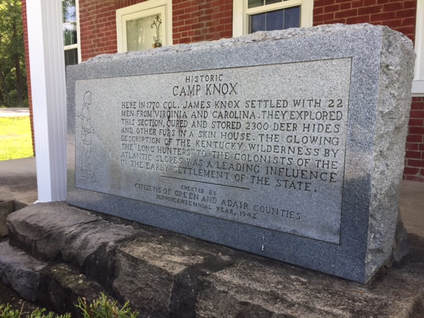 8th Virginia Captain James Knox was one of the original "long hunters," the first white men to go deep into "Kentucky country" through Cumberland Gap. 8th Virginia Captain James Knox was one of the original "long hunters," the first white men to go deep into "Kentucky country" through Cumberland Gap. The adventures of 8th Virginia Captain James Knox have been unfairly overshadowed by those of Daniel Boone. This may be true generally, but it is definitely—and literally—true at the site of a memorial marker in Greene County, Kentucky. The 8th Virginia’s recruitment area was vast—covering almost the entire Virginia frontier, which at that time stretched from Pittsburgh to the Cumberland Gap—a distance of 450 miles. Those two places were, at that time, the only practical access points to the “Kentucky Country”—all of which was, at the start of the war, part of Fincastle County, Virginia. To get there, you could float down the Ohio River from Pittsburgh, or you could travel overland through the Cumberland Gap. Few had taken the latter route, however, when James Knox led a hunting party that way in 1770. Knox was one of the original “Long Hunters,” who entered Kentucky on months-long or even years-long hunting trips, intending to return with large quantities of pelts. Daniel Boone is by far the most famous of the long hunters, but that is partly because there is only room for one of these little-remembered adventurers in public memory. In 1770, James Knox and his team established a hunting camp and pelt repository (a “skin house”) by the north bank of a creek now known as Skinhouse Branch. Years later, a church was built on the same site. Today, the 187-year old nondenominational church sits at the intersection of Skinhouse Branch and Long Hunters Camp roads—neither of which carries enough traffic to warrant painted markings. It is surrounded by farms growing corn, tobacco, and soybeans. Two stone markers were put there long ago by local citizens to memorialize James Knox and the hunting expedition of 1770. In front of them, and closer to the road, is an official Kentucky state historic marker noting that Daniel Boone was also there—a year later. Early in 1776, Knox recruited one of the 8th Virginia’s ten companies. His men were decimated by malaria during the South Carolina expedition of that summer and fall. By the spring of 1777, only a handful were left. Knox became a captain in Morgan’s Rifles and commanded a company at the victory at Saratoga. He took a few of his 8th Virginia men with him, and his 8th Virginia Regiment company ceased to exist. He was a prominent citizen of Kentucky in his later years, but has always been overshadowed by Daniel Boone. Read More: "Searching for Captain Knox" (3/29/18) 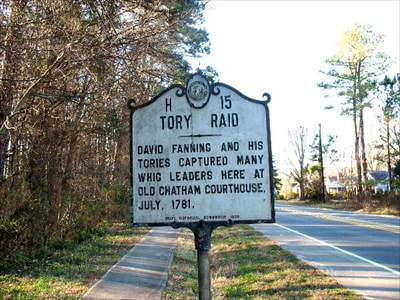 David Fanning was a notoriously violent Loyalist officer. (Waymarking.com) David Fanning was a notoriously violent Loyalist officer. (Waymarking.com) Of all the Tories engaged in the brutal southern theater of the Revolution, none has a worse reputation than Colonel David Fanning. His savagery was matched only by his loyalty to the Crown. Fanning’s career and writings offer an unfamiliar perspective on the war and its aftermath. Fanning used fear and violence to keep his part of North Carolina loyal, or at least neutral. “On one occasion, Fanning and his troop called at a smithshop to get their horse shoes repaired, where he met with a young man of the name of Bland, who had for a time served under him, but had withdrawn himself with a hope that he would be permitted to live at home in peace; Fanning charged him with being a deserter, stabbed him several times with his sword, and then shot him, and after turning him over with his foot to see that he was dead, said the d—-d rascal would never deceive him again.” 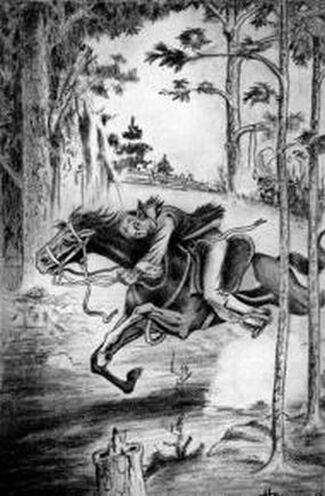 "Fanning Loses the Bay Doe." (North Carolina State Archives) "Fanning Loses the Bay Doe." (North Carolina State Archives) In a better-remembered incident, “He and his raiders first rode to Col. [Andrew] Balfour's plantation. When they arrived, the Loyalists immediately opened fire. Absalom Autry fired at Col. Balfour and the shot broke his arm. Col. Balfour made his way back into the house to protect his daughter and his sister. The Loyalists rushed the house and pulled Col. Balfour away from the women, then riddled his body with bullets. Even Col. Fanning fired his pistol into Balfour's head. The women were kicked and beaten until they fled to the home of a neighbor.” Fanning left an account of his service, which includes interesting reflections of a loyalist in Canadian post-war exile. Like combatants everywhere, he had far more sympathy for his comrades than for his enemy. Reflecting on the fate of the loyalists he had commanded, he wrote, “Those people have been induced to brave every danger and difficulty during the late war, rather than render any service to the Rebels. .... As to place them in their former possessions, is impossible—stripped of all their property, driven from their Houses—deprived of their wives and children—robbed of a free and mild government—betrayed and deserted by their friends, what can repay them, for the misery? Dragging out a wretched life of obscurity and want, Heaven, only, which smooths the rugged paths, can reconcile them to misfortune. Numbers of them left their wives and children in North Carolina, not being able to send for them; and now in the West Indies and other parts of the world for refuge, and not returned to their families yet. Some of them, that returned, under the act of oblivion passed in 1783, was taken to Hillsboro, and hanged for their past services that they rendered the Government whilst under my command.” The Act of Pardon and Oblivion had been passed by the North Carolina legislature in 1783 to pardon most of the states citizens who had been Loyalists during the war. Some Loyalists were not eligible for pardon under the terms of the statute. Those who had become officers in the British Army were ineligible, as were those who had left the state with the British for more than a year. The act also made Tories who had committed "willful and deliberate murder, robbery and house-burning" ineligible. Fanning would therefore have been ineligible but, just to be sure, the law specifically excluded him and two others by name. 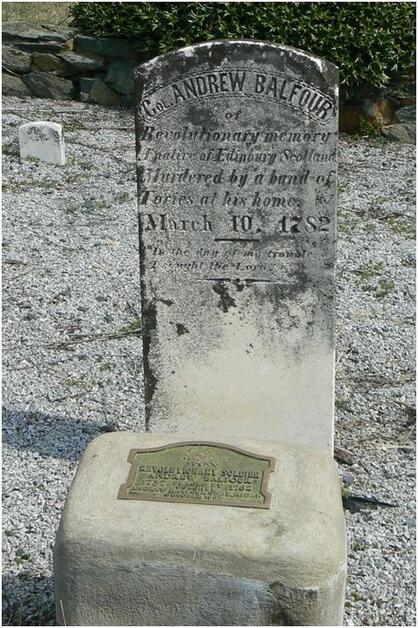 The grave of Andrew Balfour, murdered by Fanning in 1782 (months after the Battle of Yorktown). (randolphhistory.wordpress.com) The grave of Andrew Balfour, murdered by Fanning in 1782 (months after the Battle of Yorktown). (randolphhistory.wordpress.com) Fanning’s memoir begins with a scriptural citation. Quoting 1 Samuel 15:23, he writes, “Rebellion according to the Scripture is, as the Sin of Witchcraft; and the propagators thereof, has been more than once punished; which is dreadfully exemplified this day in the now United States of America but formerly Provinces; for since their Independence from Great Britain, they have been awfully and visibly punished by the fruits of the earth being cut off; and civil dissention every day prevailing among them; their fair trade, and commerce almost totally ruined; and nothing prospering so much as nefarious and rebellious Smuggling.” Indeed, the first years of Independence were messy. Even as Fanning was completing his memoir, the First Congress was meeting in New York under the new Constitution and working with the nation's first president to craft a more perfect union. A close read of 1 Samuel 15 puts Fanning’s scripture quote in context, providing food for thought. The full verse reveals that it is a king (Saul, the predecessor of King David) who has rebelled against the will of God. (I quote here from the King James version, the version Fanning would have read.) “For rebellion is as the sin of witchcraft, and stubbornness is as iniquity and idolatry. Because thou hast rejected the word of the LORD, he hath also rejected thee from being king.” This, at least to modern minds, turns the meaning of the verse on its head. However, Saul’s confession turns the meaning around one more time. “And Saul said unto Samuel, I have sinned: for I have transgressed the commandment of the LORD, and thy words: because I feared the people, and obeyed their voice. (1 Samuel 15:24) Kings owe their allegiance to God, not to the people. To Fanning, evidently, that was an important distinction. (Revised September 16, 2020) More from The 8th Virginia Regiment |
Gabriel Nevilleis researching the history of the Revolutionary War's 8th Virginia Regiment. Its ten companies formed near the frontier, from the Cumberland Gap to Pittsburgh. Categories
All
Archives
June 2024
© 2015-2022 Gabriel Neville
|
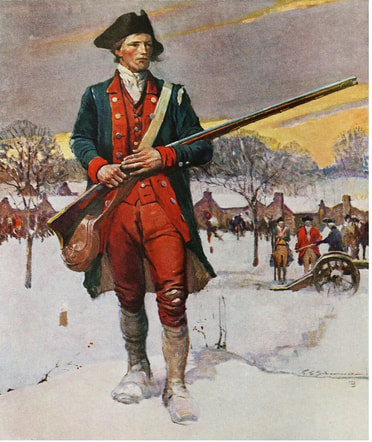
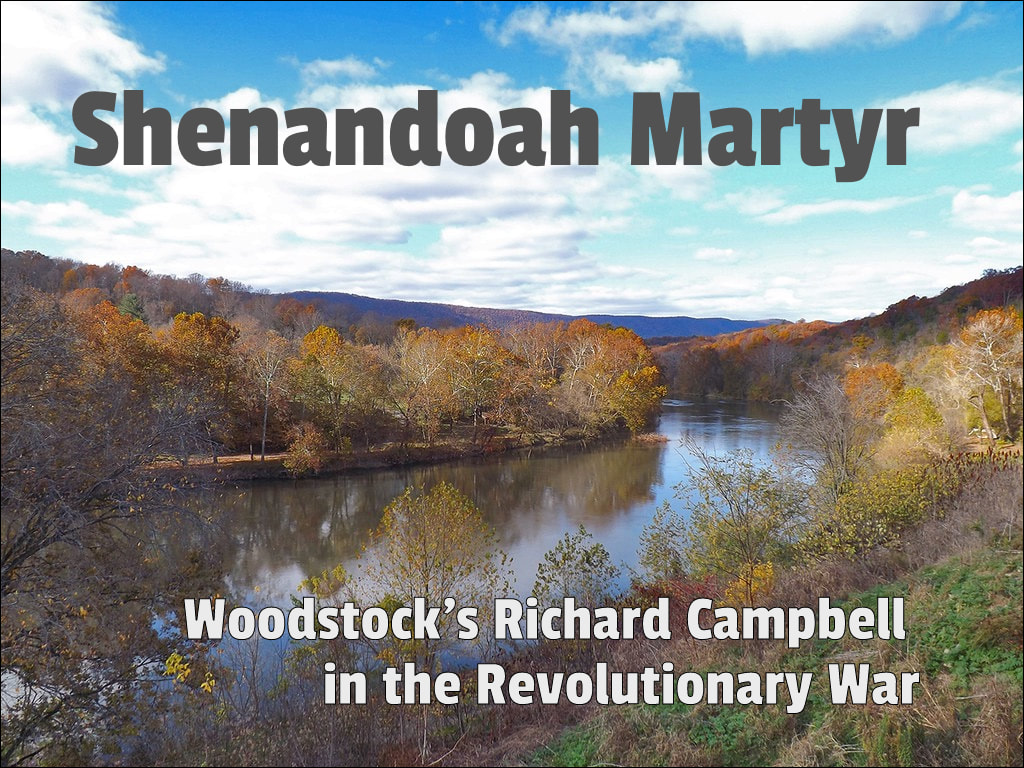
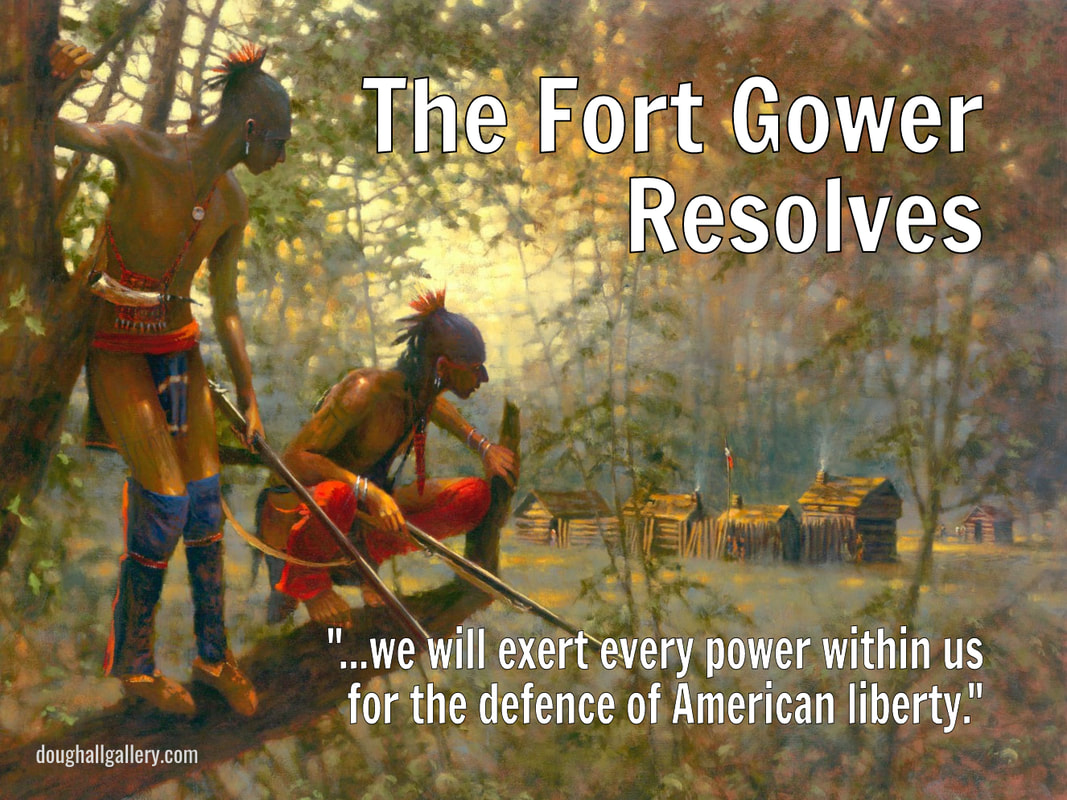
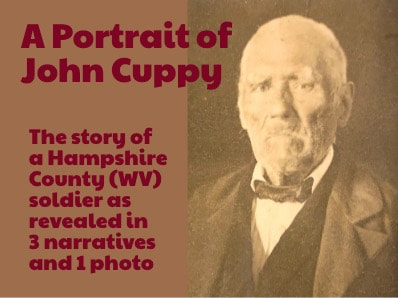
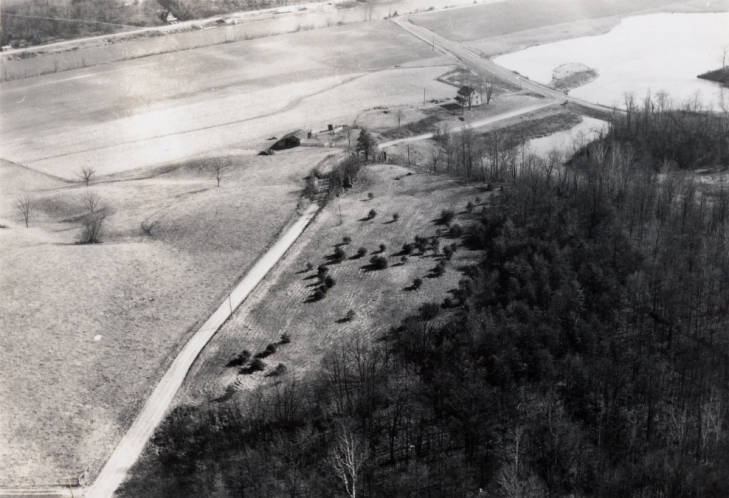
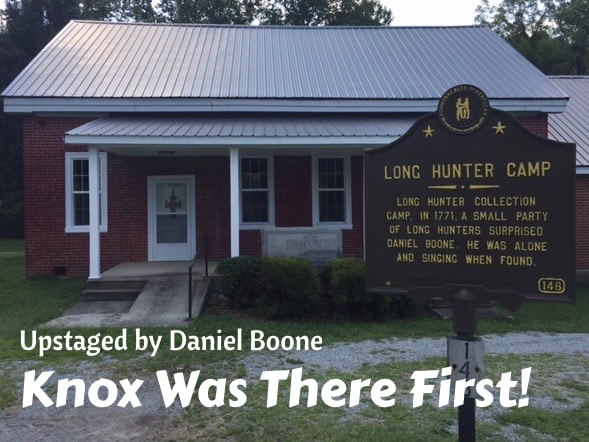
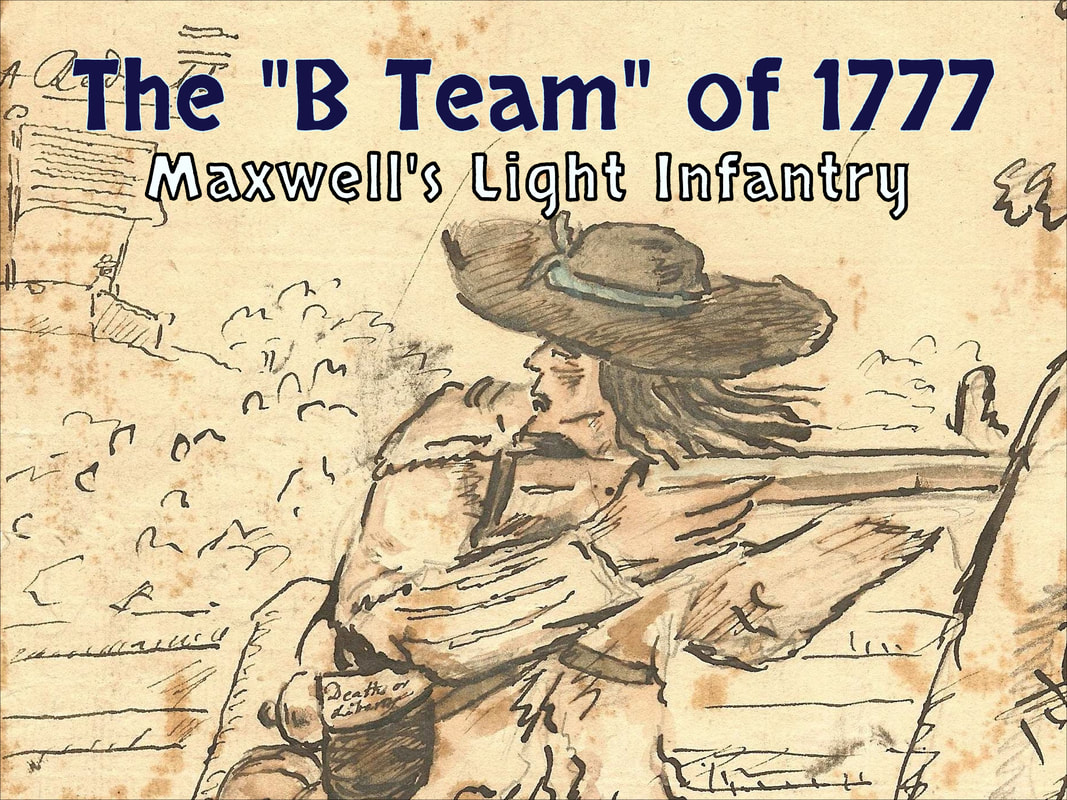
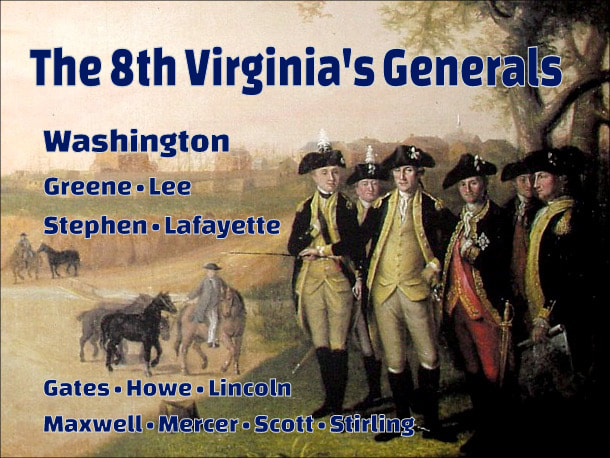
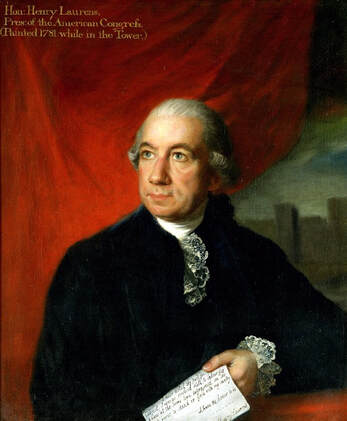

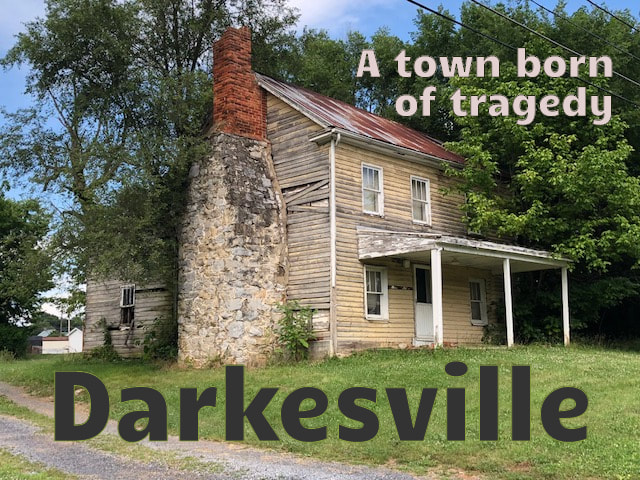
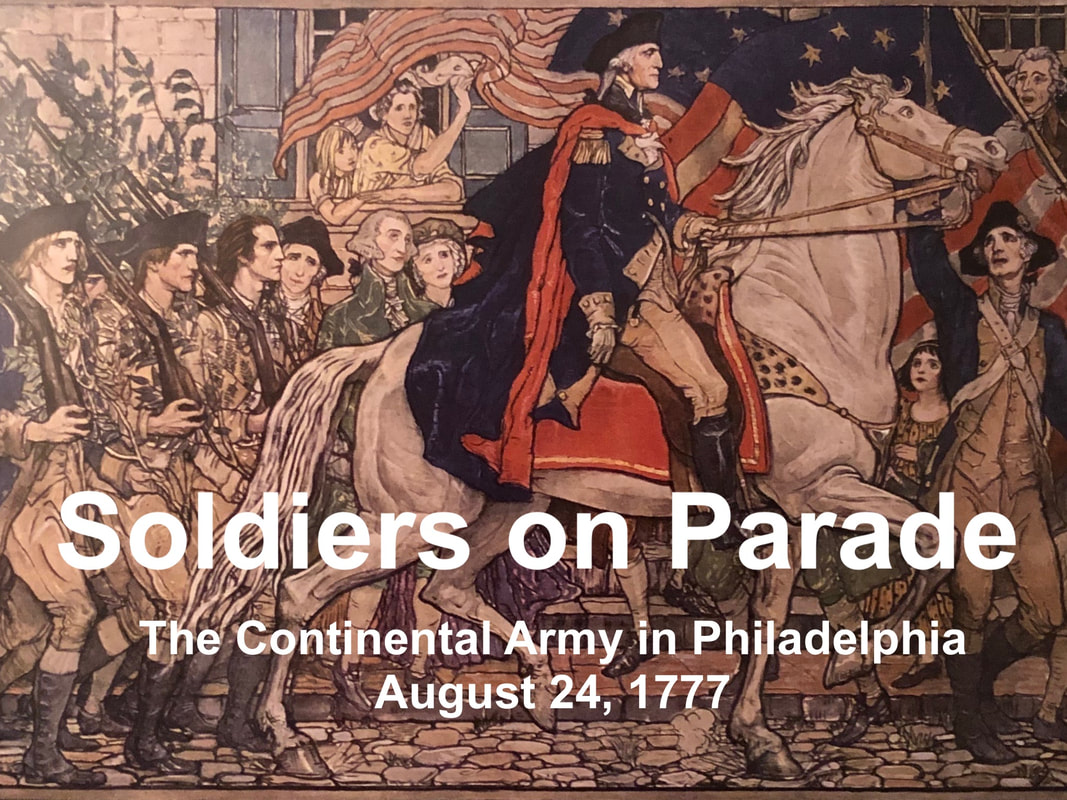
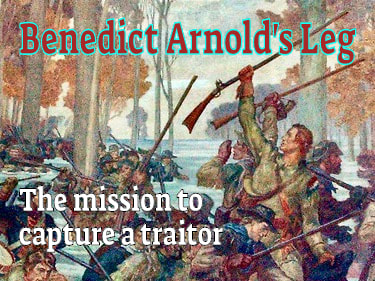
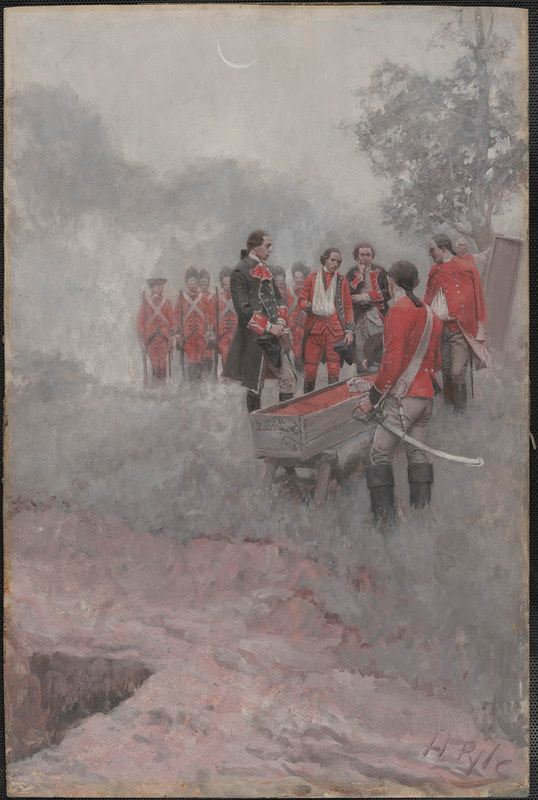
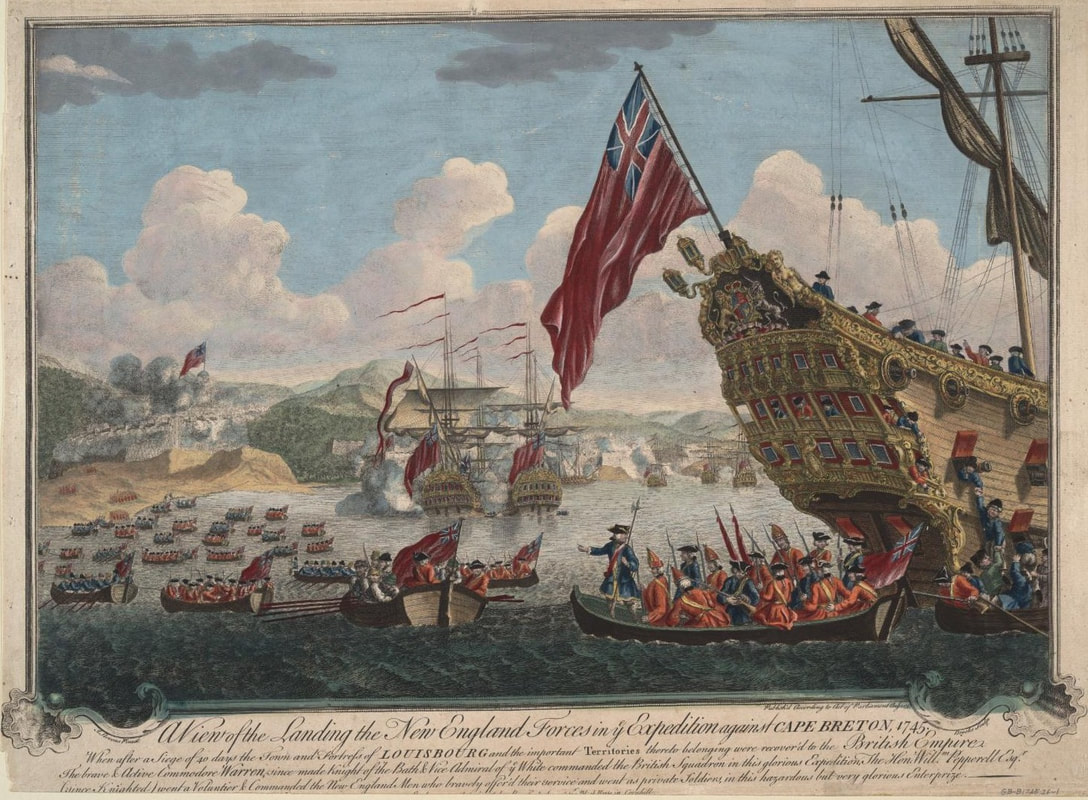
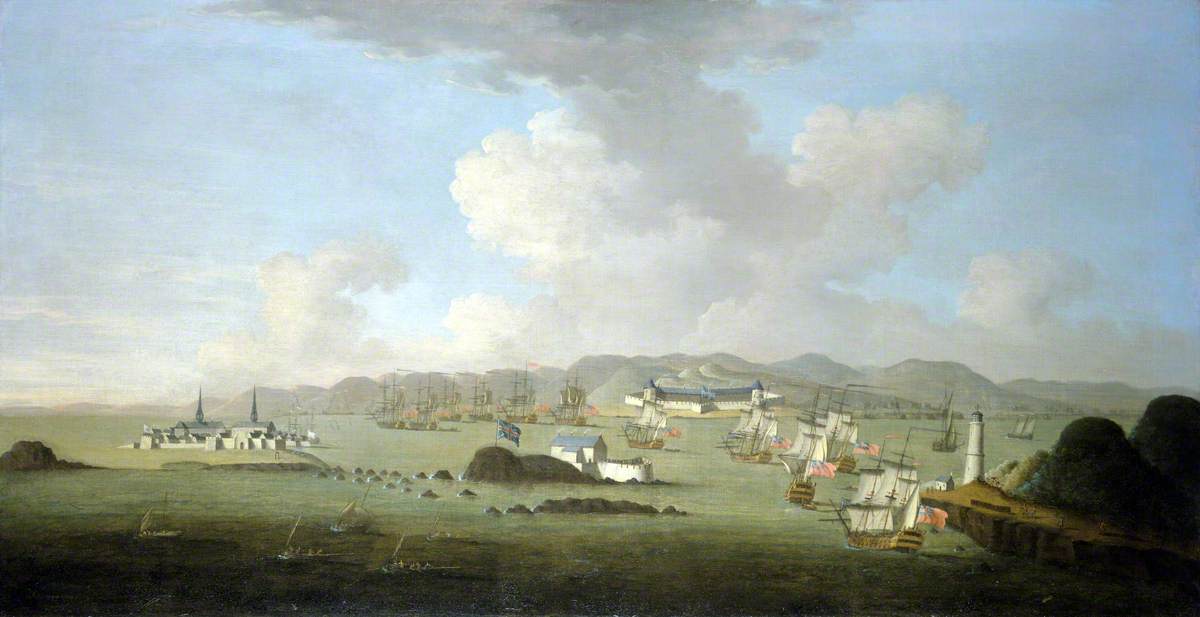
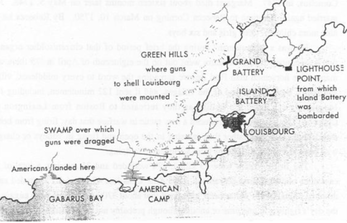
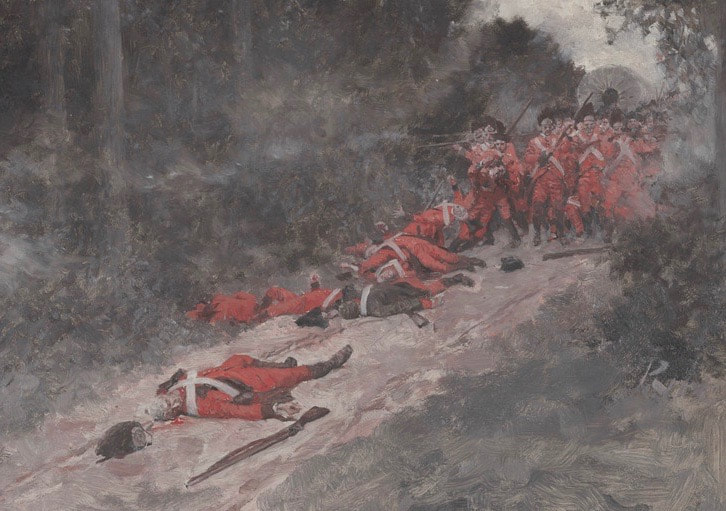
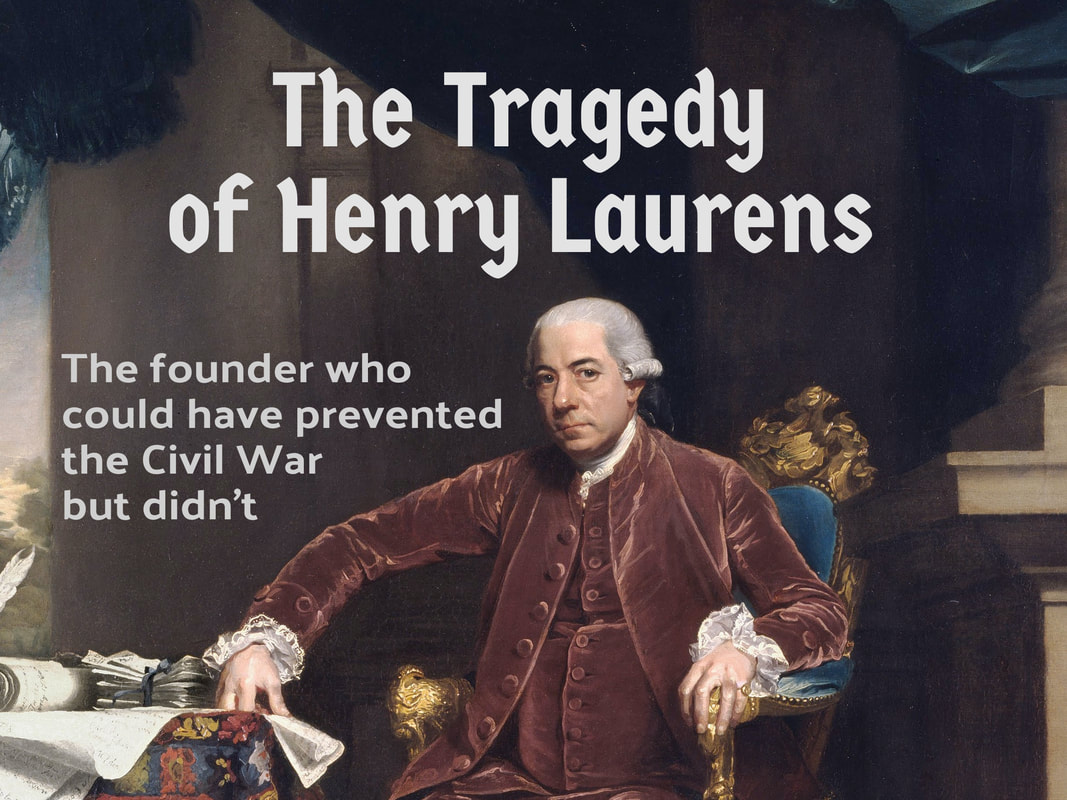
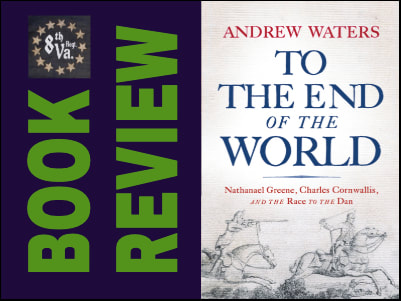

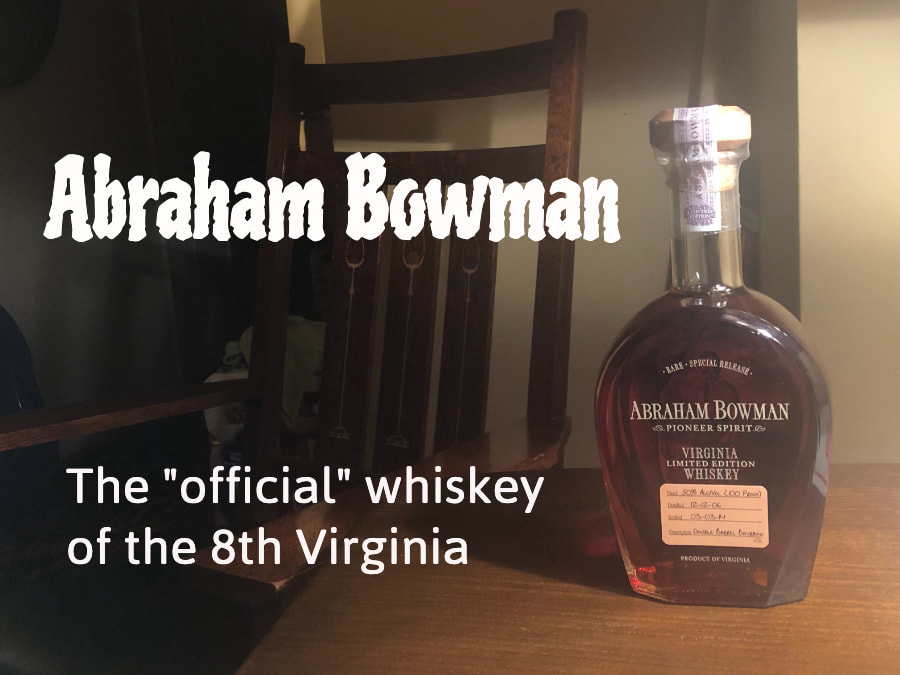
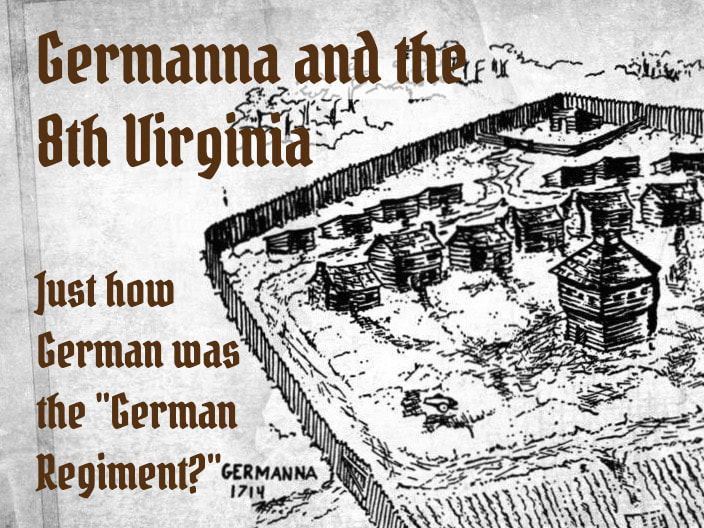
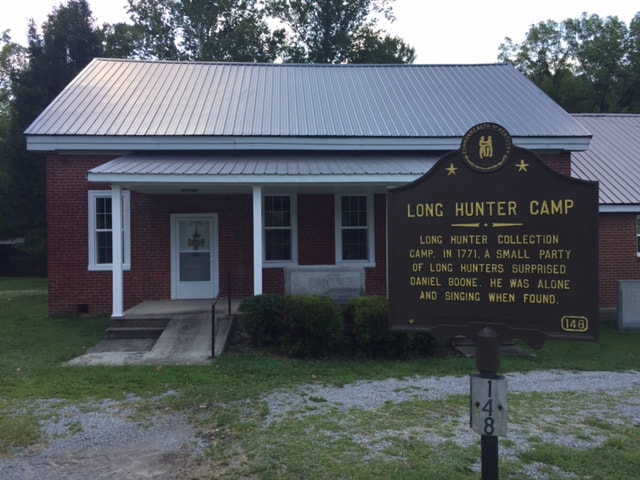
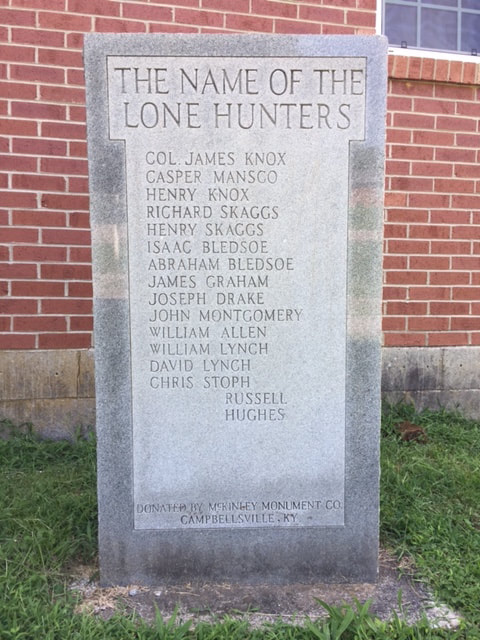
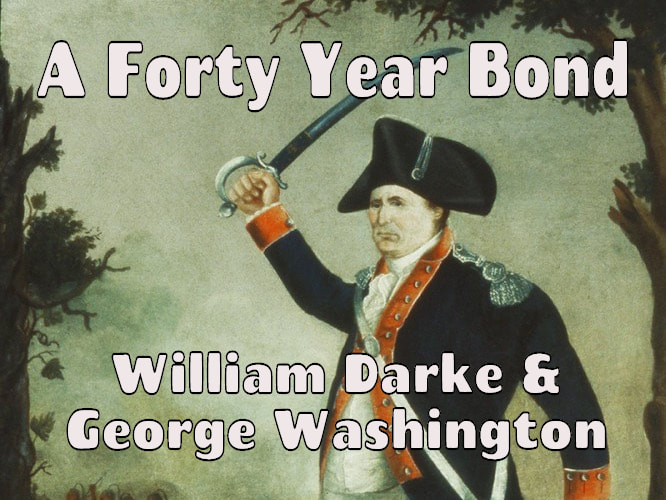
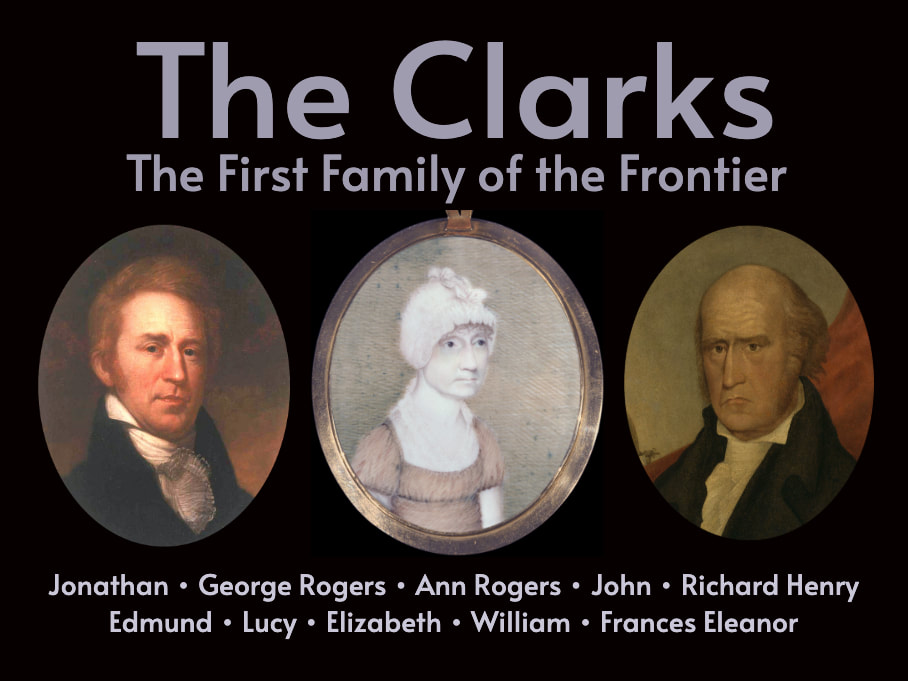
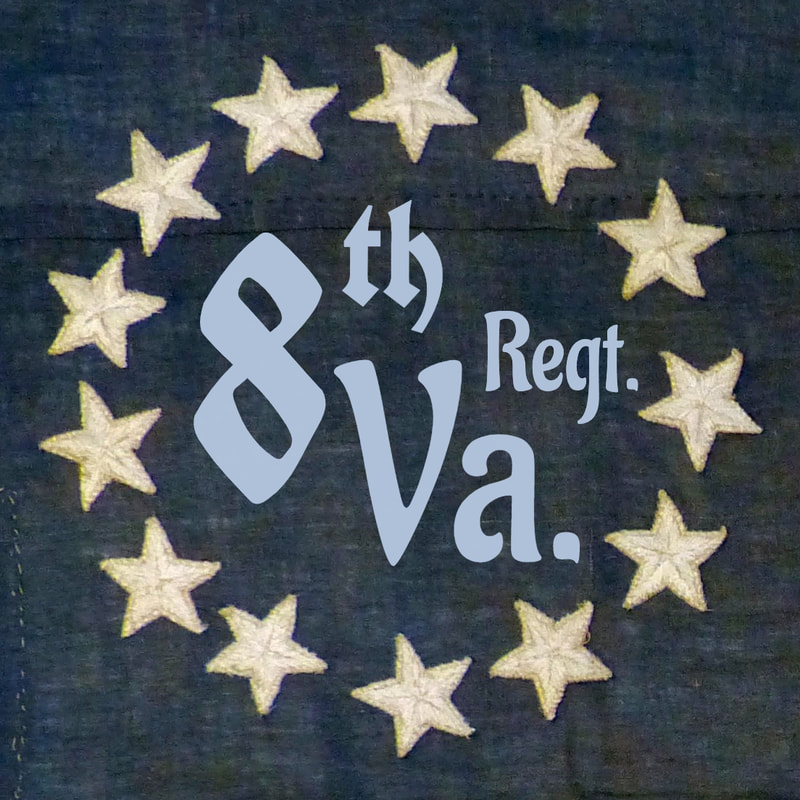
 RSS Feed
RSS Feed